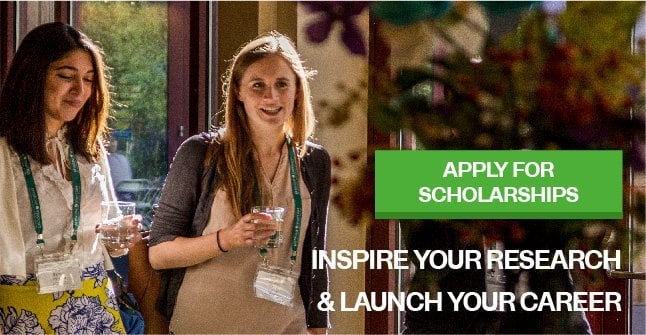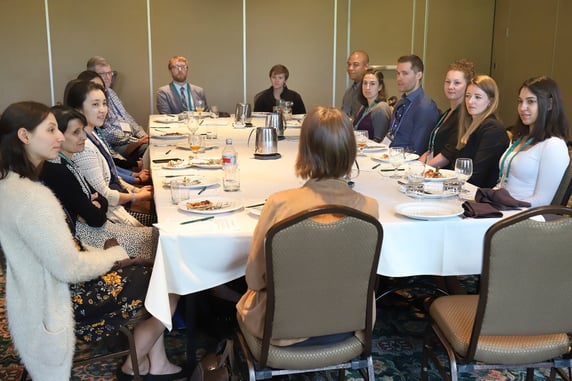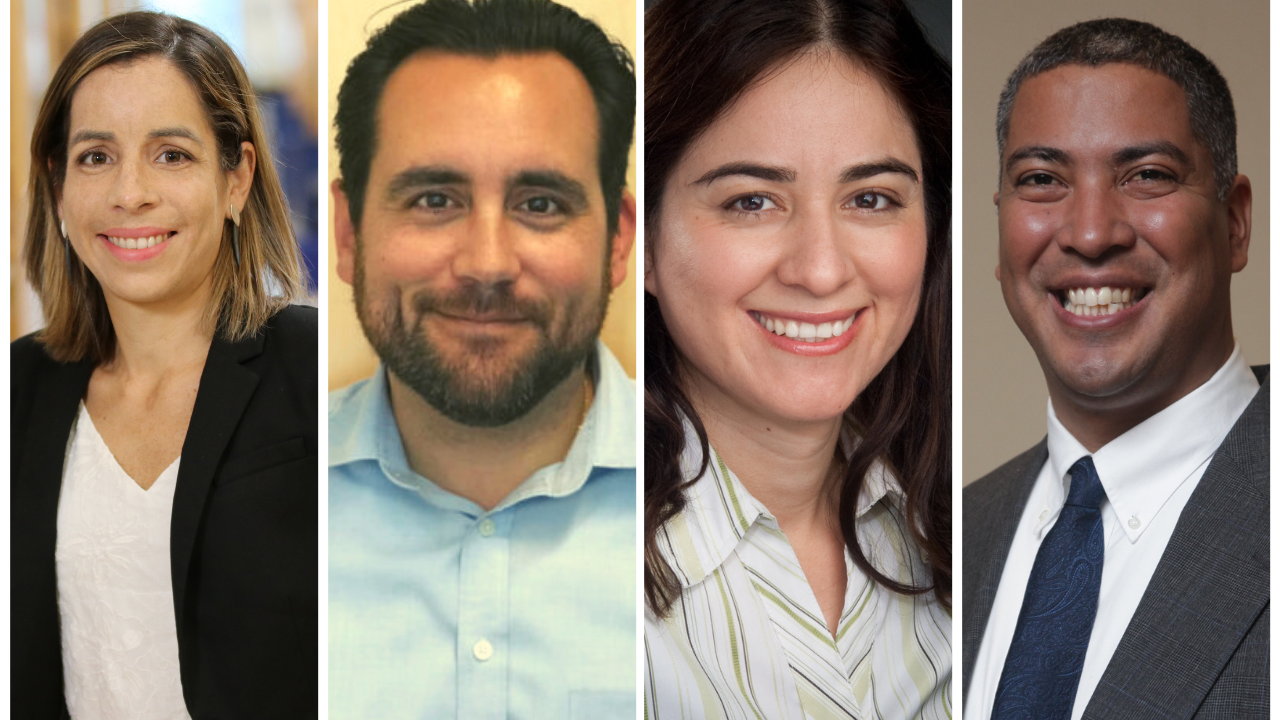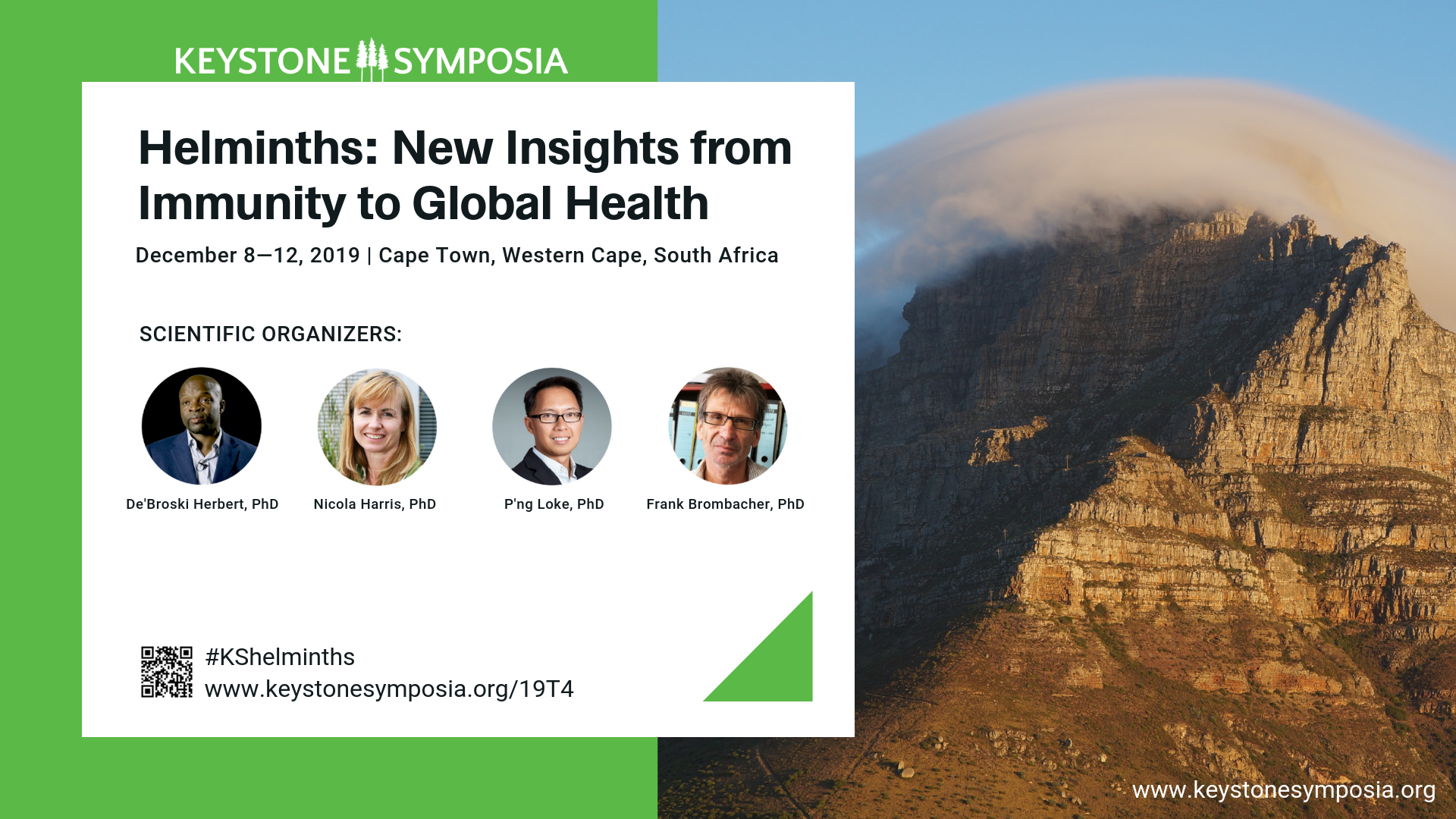Words of Wisdom from the Career Roundtable for Students & Post-Docs
As part of our commitment to support and train the next generation of scientific leaders from all backgrounds, Keystone Symposia hosts Career Roundtables for students and Post-Docs attending the meeting.
These workshops create a forum for field leaders to provide their unique perspectives on career development, professional pitfalls and the breadth of scientific opportunities available to support trainee scientists. Established researchers are chosen from a broad range of backgrounds, including diverse demographics, career stages, and career choices, to reflect a variety of career paths and experiences.
At the Intra- and Intercellular Mechanisms of Aging meeting in Vancouver, meeting organizer Malene Hansen spearheaded the effort to assemble a diverse panel to share their career insights with eager students and post-docs aspiring to follow in their footsteps.
Here, we would like to share their advice with the broader online community - you.
Meet the Career Round Table Panelists:
Editors: Anna Kriebs (Nature Communications) & Julie Sollier (Developmental Cell)
NIH/Government: Felipe Sierra (NIA), Tracy Rankin (NIDDK) & Laurent Taupenot (CSR, National Institutes of Health, USA)
Junior Academic PIs: Ashley E. Webb (Brown University, USA) & Dario Riccardo Valenzano (Max-Planck Biology of Ageing, Germany)
Senior Academic PIs: Johan Auwerx (École Polytechnique Fédérale, Switzerland) & Malene Hansen (Sanford Burnham Prebys Medical Discovery Institute, USA)
Industry PIs: Chee-Yeun Chung (Yumanity Therapeutics, USA) & Heinrich Jasper (Genentech, Inc., USA)
Words of Wisdom From our Career Panel
- Don’t Be Afraid to Take Risks or Change Course
This was a common theme from many panelists, who stressed that fear will hold you back in whatever career path you take.
- Don’t limit your choices and opportunities based on fear of the unknown
Whether exploring a new research field, new methodology, or a new career path entirely—the unknown is where the treasures lie. There are infinite opportunities, paths, and rewards out there, which you will never discover if you don’t take the risk to look outside your own realm of experience.
- Never be afraid to change; change is good.
“Don’t be afraid of being flexible and don’t be stuck in one position or career path-- if you don’t enjoy what you’re doing, try something else.”
- Sometimes the riskiest decisions are the most rewarding.
“Don’t be scared of trying new things, like jumping from academia to industry or government--- take risks, especially when you are still young.”
Transitioning from a Post-Doc to a Faculty Role
Starting your own lab is full of challenges, change, and unknowns—after years behind the bench, suddenly your responsibilities shift to writing grants and managing a team.
Our Junior and Senior PI’s shared their insights and wisdom about how to navigate this transition, both in the day-to-day, and in the long run, to become a successful academic scientist.
- Don’t Be Intimidated…Ask for Help!
Everyone is just figuring it out when they get started in their first faculty position, and it will take time to develop the skills to become a successful PI. But you are not alone in this process. Even the most senior PIs started somewhere and floundered at some point in the process of getting to where they are today. Their lessons are your resource, and your colleagues can help guide you through this transition. So while it may feel like you have to be perfect right out of the gate, don’t be afraid to ask for help— whether in reviewing your grants, or navigating how to manage your new lab— their insights will save you a lot of time, effort and confusion as you find your footing in the new role.
“You don’t have to be great at everything as a PI, whether junior or senior—you can get help,… in writing, in learning new techniques, etc. Life, and your career, are a continual learning and improvement process.”
- Writing is Key
You will now be spending a lot of your days writing grants, publications, etc. Honing your writing skills will be critical to your ultimate success.
“Prepare yourself to become a writer, but DON’T PANIC! Even if you don’t start out as a natural or great writer, you can develop those skills. Be patient with the writing process… and get a standing desk. Grants are a great way to develop new ideas and learn as well.”
“Don't’ skip journal club – reading broadly is key to develop your scientific perspective and own writing style.”
- Carve your own Path
When you strike out on your own and start your own lab, where is the line between your post-doctoral research project and your new work? What does your former PI “own” and what is yours? How do you “rebrand” your work as your own?
“Have a real conversation about this before you leave the lab and make sure that is clear to both you and your advisor. In particular, be transparent about ‘self-developed’ projects. Continue to communicate with your former advisor once in a while to keep the boundaries clear. But not too often-- make sure you have enough intellectual space to build your own narrative in your own lab and your own career arch.”
“Being successful in your career as a new independent investigator is in the interest of both you and your previous advisor. Do not burn any bridges.”
- Maintaining Sanity
All these changes and new responsibilities can be stressful and disorienting. Make an effort to create a ‘safe-space’ to remind you what drives your passion for science.
“Carve out some time every day to do what you love or miss from being at the bench, whether that is setting up an experiment, doing data analysis, or something else that you’ve lost touch with as a PI.”
“Don’t forget your life and interests outside of work, including hobbies – it is important to keep a balanced work- and personal life.”
|
Don't miss your chance to attend a Career Roundtable and find mentors! Win a scholarship to attend an upcoming 2021 meeting in your field! |
 |
Advice to Post-Docs bound for Academia vs. Industry
Academic and industry paths both offer fulfilling career opportunities, so how do you choose which path is right for you?
Our industry experts weighed in on what industry research is like, noting that the environment at a large company like Genentech Inc. will be vastly different from that of a small start-up in biotech. Working for a small start-up may be riskier, but it will also be more dynamic, exciting and rewarding to some. Others may prefer the stability and resources of an established company.
- Be a Team Member
“In industry, being a team member and being flexible are very good qualities to have to be successful.”
- Be Goal Oriented but also Flexible
“Research in industry is more goal-oriented, and geared towards translational impact if that kind of work appeals to you. That also means you don’t have as much control over the research trajectory of the project, and you may have to abandon an interesting project if it doesn’t make sense financially for the company.”
The NIH is Your Resource - Reach out!
The National Institutes of Health (NIH) may seem like a big, black, scary box, but real people work there… and they are there to help you! This may sound crazy, but it’s true… we met them! Here are some of the things they had to say:
“Communicate with your program officer in far advance of submitting a grant. Set up an appointment so we can familiarize ourselves with your application and then we will be happy to advise you on how to best position your work.”
“Pick up the phone early and often and talk to us, so we can work together to find a home for your work… but also keep in mind, it is the government, so some patience can be required.”
"One of the most important recommendations for grant success was, don’t be too “over-ambitious”-- make sure the scope of the work suggested is focused and do-able."
Additional Pearls of Wisdom for Future Scientists
Of course, we can't recount all the advice and wisdom that was shared during the session here, but two more important themes emerged that all our panelists agreed on:
- Be Adventurous:
“Never say no—interact with as many people as you can, take on new opportunities as much as you can-- because you never know what will happen and it is really these serendipitous opportunities that will make a difference in your career.”
“Keep your options open and listen for different opportunities.”
- Speak up!
“Don’t assume you are the only person with a ‘dumb’ question or who doesn’t know the answer—odds are there are plenty of other people in the room wondering the same thing who aren’t brave enough to ask.”
“Don’t be afraid of the ‘old guys’ or the ‘big shots’ in the field —you can ask questions without feeling stupid, because we have all been there. When you ask your question, introduce yourself so we get to know you and remember you—it’s very important for your career.”
Find Out More About Our Career Development Initiatives
https://keypoint.keystonesymposia.org/features/next-wave/next-generation-future-research-leaders/
Related news
Q/A with "Helminths: New Insights from Immunity to Global Health" co-organizer Dr. Nicola Harris
"Helminths are perhaps the most successful parasites on the planet," says Dr. Nicola Harris,...
Emerging Cellular Therapies Keystone Symposia, NOW April 27- May 1, 2022
This multidisciplinary conference will integrate emerging technologies and immunobiology to advance...






